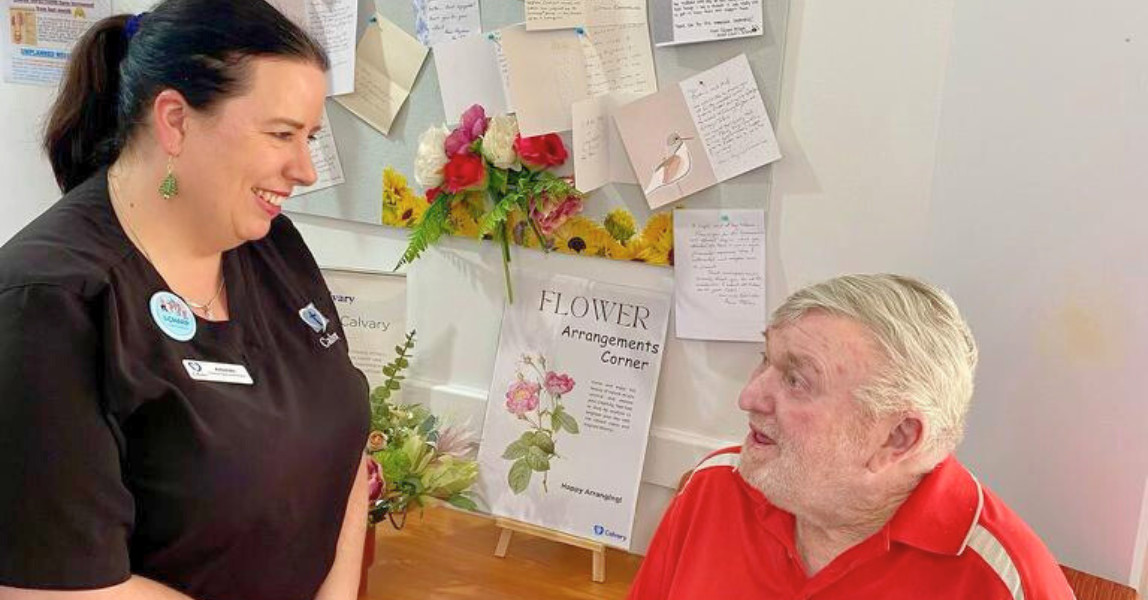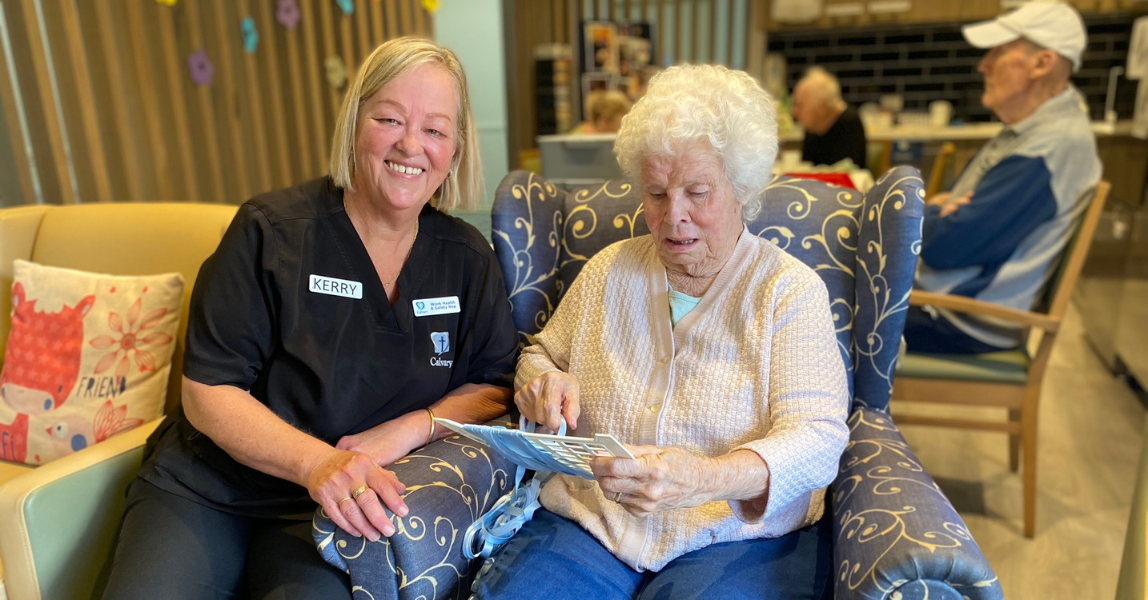Fresh approach to dementia support helping Calvary focus on tasks at hand

Calvary is partnering with the University of Sydney to trial and evaluate a reablement approach bringing experienced occupational therapists and aged care nurses together to develop holistic and tailored care plans with and for residents based on their individual needs and goals.
About the partnership
Calvary’s Senior Medical Advisor for Aged Care, Dr Tony Hobbs said the aim was to co-design a real-world model of care for aged care residents and providers that may ultimately become routine practice in homes across Australia.
“There is a perception that there is nothing that can be done to help people living with dementia or a mild cognitive impairment to maintain their independence,” Dr Hobbs said.
“That simply isn’t the case, and this new approach is designed to help residents continue to participate in activities and maintain their independence and function for as long they can.
“We are looking at things like mobility, language, activity, and self-care, and the program is based on teamwork between the care home registered nurse and the occupational therapist (OT) and other allied health professionals. Getting an OT involved at the beginning brings a fresh perspective and a different set of eyes.”
Our new approach in practice
Danielle Mills is the fresh set of eyes at Calvary Oaklands, in the Adelaide suburb of Oaklands Park, and is a big believer that small things that can make a world of difference.
As an occupational therapist at Calvary Adelaide Hospital, she supports surgical and medical patients on the acute wards and put her hand up for the I-CHARP (Interdisciplinary Care Home-based Reablement Program) study after a call within Calvary for expressions of interest.
“It was a great opportunity to be a part of a really important research project,” said Ms Mills who has worked previously in aged care and community care. “I always want to keep learning and improving my skills and help improve care for our patients and residents.”
“As an OT, we take a holistic approach. We look at the whole person, their environment, and their occupations, which is their daily activities and their interests.
“One of the first things is really breaking down the tasks people do or are involved in, and we focus on the parts they can do, not what they can't do. They may not be able to do the big things anymore as they age or their cognitive ability declines but there may be smaller parts of the task that they can do.
“They may not be able to shower without assistance for example, but perhaps, with aids or extra support, they could wash their own face or brush their hair or teeth. So that might be a goal for them, and we look at what we need to do to make that happen for them.
"Sometimes it’s the little things that can make a big difference.
Ms Mills cites the example of one resident who has signed up to be part of the project.
"He loves talking about his grandchildren and showing photos. He talks about their interests, but he can't remember their names, which he finds frustrating. He wants to remember, that's his goal, and we are going to provide some cognition retraining.
“I'm looking forward to seeing his smile when he puts the names to the faces."
The five-year study is being funded by the National Health and Medical Research Council.
“It is still early days, but we have seen some promising results and positive outcomes so far,” Dr Hobbs said.
“Calvary is one of two aged care providers partnering with University of Sydney in the program. We are also trialling it at our Calvary Brighton home here in Adelaide, as well as several of our homes in Sydney and the Hunter Valley in New South Wales.
“With hospitals, residential aged care, and home care services, Calvary is able to offer our clinicians this sort of opportunity where they can work alongside and learn from colleagues in other health sectors and disciplines.
“I’m sure Danielle will be sharing her learnings with colleagues at Calvary Adelaide Hospital, which already has a strong culture of innovation, including caring for patients with dementia.”
Professor Yun-Hee Jeon is the project lead and the Susan and Isaac Wakil Professor of Healthy Ageing at the University of Sydney. She said the reablement project builds on a similar program that helped improve daily independence and slowed further cognitive decline among participants living with mild dementia in the community.
You can learn more about the comparative study on the University of Sydney’s website.


